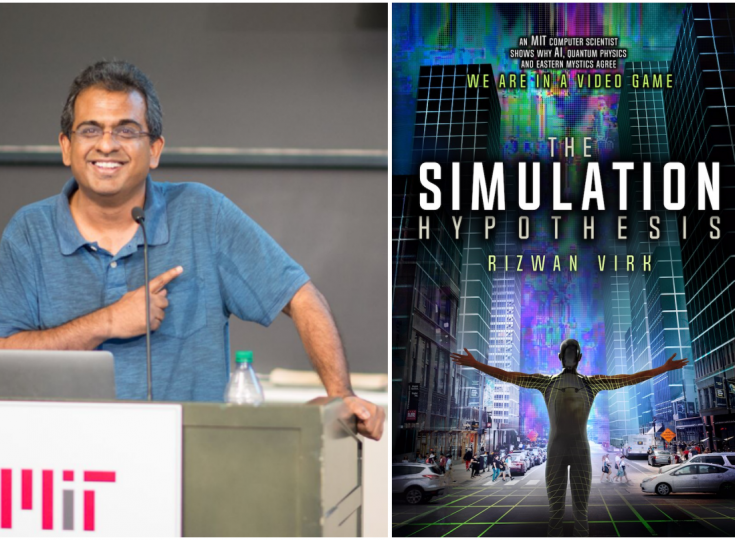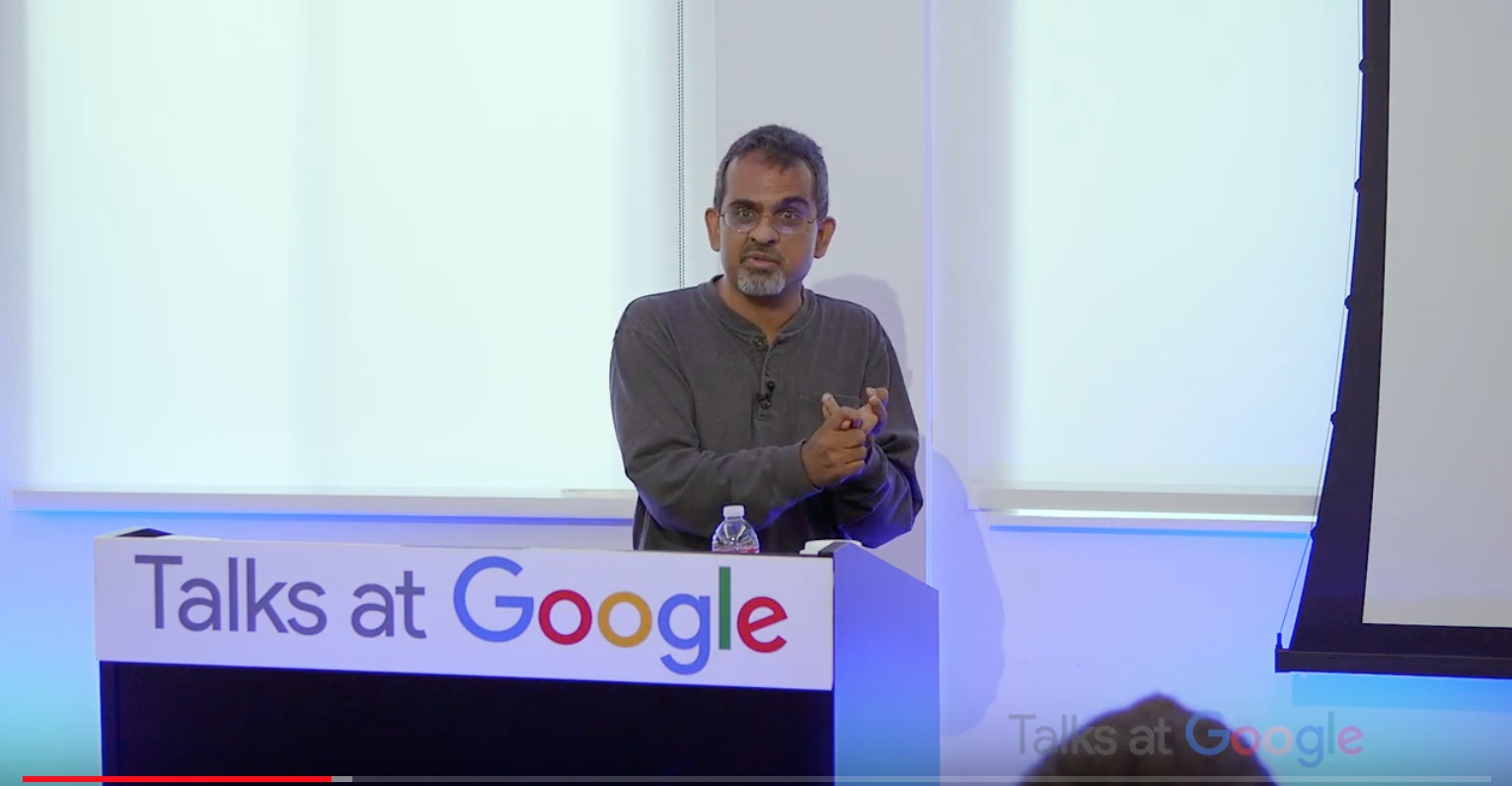Rizwan Virk - Do We Live in a Video Game?

A graduate of MIT and Stanford, Rizwan Virk is a successful entrepreneur, video game pioneer, film producer, venture capitalist and bestselling author of Zen Entrepreneurship. Riz's video games, including Tap Fish and Penny Dreadful: Demimonde, have been played by millions. He is the founder of Play Labs @ MIT, a video game accelerator at the Massachusetts Institute of Technology. As our Author of the Day, he tells us all about his book, The Simulation Hypothesis.
Please give us a short introduction to what The Simulation Hypothesis is about.
The Simulation Hypothesis is the idea that we live inside a computer generated simulation, like an ultra high resolution video game, running on some sophisticated computing system. This turns out to be the modern equivalent of an idea that has been around for some time: that the world around us is not the "real world". I explore it from the point of view of our computer technology, from the point of view of physics/science understanding of the world, and from the point of view of the world's religions.
Was there anything in particular, an incident or something you read, that made you want to tackle this?
I have been fascinated with this idea since I first watched the Matrix many years ago. Being a video game designer, and having studied many different world religions, I was intrigued with the parallels. Oxford philosopher Nick Bostrom wrote a paper called, "Are You Living in a Computer Simulation" in 2003 that got debate going. In 2016 I was playing a virtual reality ping pong game that felt so realistic that I forgot it wasn't real; I tried to put the paddle down on the table and lean against the table, but there was no table!
You are a video game designer yourself. How has this influenced your writing and your outlook on life?
Having designed video games I've seen the rush towards higher pixel resolution and fidelity. Moreover, I saw the optimizations that we had to make to manage large virtual worlds using 3D models. I would say that looking at life like a video game is part of what inspired me to write this book; we have many challenges which are like quests and we learn or "level up" our "avatars", just like in a video game.
How much research did this book require from you?
In a way, this book was a culmination of many years of research into video games, computer rendering, quantum physics, AI, buddhism and the Eastern religions. That said, because I had been fascinated by these subjects for much of my adult life, I wrote an article in 2017 to bring it all together, and this article proved incredibly popular. Then, I wrote the book and it came together quickly because I had already done much of the research.
What was the most interesting aspect of your research?
The fact that quantum mechanics teaches us that "only that which is observed" actually takes form in phsyical reality -otherwise it remains a "probability". This is very similar to how we build video games - only what can be seen by an avatar of a player is actually "rendered" into pixels - it's the same basic rule and it's an optimization technique.
Besides writing, what other secret skills do you have?
I like to help people bring their projects to reality and to navigate the world using intuition and synchronicity.
Why, would you say, is the Simulation Hypothesis not just a modern idea?
It turns out that in the Eastern religions, such as Buddhism and Hinduism, the idea of "maya" was prevalent, which is that we are living in an illusion. Of course, they also had the idea that we "downloaded" into an avatar and then "uploaded" at the end of our lives, finishing our "gameplay" as the avatar. In fact, the information that is uploaded is basically what is referred to as "karma" which lives somewhere.
Where do parallel universes fall into the picture?
Parallel universes are an alternative way to understand quantum mechanics. They have become incredibly popular in science fiction lately (think of the Flash and Supergirl and the different Earths that are there). Parallel worlds are a way to avoid "probability" of multiple outcomes - all possible outcomes happen in all possible worlds, according to the theory. If this is true, it is more likely that these "possibilities" are only computations and not actual physical worlds because cloning a physical world is a costly operation; cloning the "gamestate" of a world can be done quickly in any computational device.
Why do you use video games as a way to explain the hypothesis?
A multiplayer video game is the best way to describe the simulation we are in. The Hindus called it the "Lila" or the "Grand Play", the Buddhists referred to "waking up" from the dream, and Shakespeare also referred to "all the world's a stage". However, these are older metaphors and don't show the level of interactivity and aspect of multiple players that an MMORPG can (Massively Multiplayer Online Role-Playing Game). if Shakespeare were alive today, I think he would say "All the world's a video game, and we are merely avatars in this virtual world!"
Tell us more about the cover and how it came about.
I wanted something that looked like the Matrix and artwork from the 13th floor but had a sense of AI, and found a designer that was willing to create it for me.
If simulation theory is true, how would that influence the way we value life?
If the world is a video game, then you should think about the challenges in life as being "quests" and "achievements" that you have to overcome before "leveling up"!
Do you have any interesting writing habits? What is an average writing day like for you?
I used to write in coffee shops, but with covid, I haven't been able to, so have been finding odds and ends places to do writing!

What are you working on right now?
I just released Startup Myths & Models:What You Won't Learn In Business School (from Columbia University Press), and I'm writing another book about Simulations and Timelines and the Mandela Effect.
Where can our readers discover more of your work or interact with you?
My website is www.zenentrepreneur.com, and my twitter handle is @rizstanford, and some of my articles are available at www.medium.com/@rizstanford








